GREEN NEWS
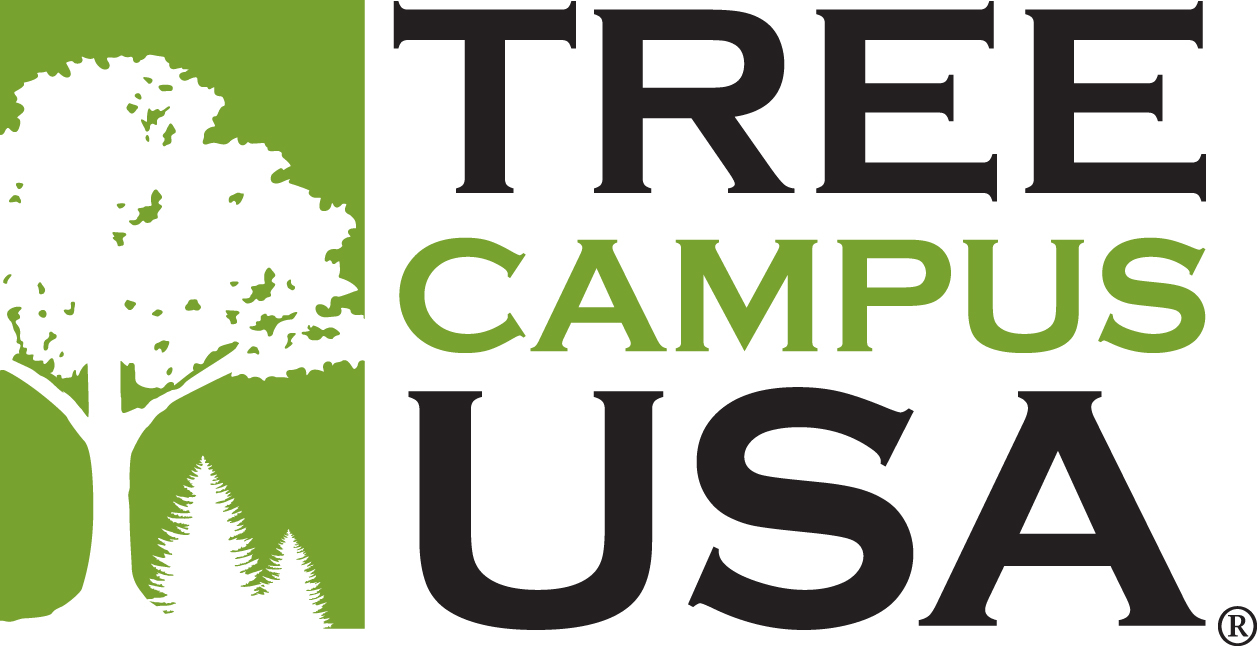
Count it! Sac State Named Tree Campus USA for 5th Straight Year!
In February of this year, Sacramento State was awarded the distinction of being a Tree Campus USA by the Arbor Day Foundation for the 5th year in a row!
The application process requires a five step process which includes:
- The creation/continuation of a Tree Campus USA Committee.
- A comprehensive Campus Tree Care Plan.
- Dedicated annual expenses for the Campus Tree Care Plan.
- An annual Arbor Day observance.
- A Service Learning Project.
Last year’s Arbor Day observance took place during the University’s Earth day celebration when President Nelsen and a group of campus leaders planted the Arbor Day Tree in the library quad using actual Sac State made compost. This tree was added to the already existing 3500+ trees on the Sac State campus.
There were two service learning projects to support this effort. The first was the ongoing composting of the university’s green waste at the campus’ composting facility. The second was the calculation of carbon sequestered in the campus trees. With the carbon sequestered in the trees, that means less is released as a greenhouse gas. Sac State Sustainability team members worked hand in hand with students to accomplish both of these Service Learning Projects.
The Power of Recycling
Have you ever wondered where your trash goes each day? Many of you might wonder, as you are tossing away your lunch, which basket should I throw this into? Does this go in the blue bin or the gray bin? What happens if I do it wrong? These are all valid questions, especially since our campus is home to nearly 33,000 students and thousands of employees; we create an abundance of trash each day. ABA staff members play a vital role in both creating trash and can serve to model good recycling behavior for our campus community. ABA is a very diverse  division, with our staff spaced all over campus and many of us doing very different, yet vital, work. While some of us are patrolling on bicycles and cars, others are keeping the campus grounds, or conducting service calls in offices and classrooms. However, nearly half of our staff in ABA work in desk environments. Therefore, it is no surprise that 80-85% of our campus’s trash comes from office and building spaces. Yet, many of us do not know where our recycling goes once it leaves our desk and might not feel confident that we are recycling correctly.
division, with our staff spaced all over campus and many of us doing very different, yet vital, work. While some of us are patrolling on bicycles and cars, others are keeping the campus grounds, or conducting service calls in offices and classrooms. However, nearly half of our staff in ABA work in desk environments. Therefore, it is no surprise that 80-85% of our campus’s trash comes from office and building spaces. Yet, many of us do not know where our recycling goes once it leaves our desk and might not feel confident that we are recycling correctly.
Fortunately, Sacramento State has an award winning recycling program and a very passionate and knowledgeable recycling coordinator, Joey Martinez. As the recycling coordinator, Joey spends a lot of time doing recycling and refuse outreach for our campus community. Joey’s loudest message to the community and his ABA colleges is to error on the side of recycling. When you are standing next to your desk bin about to make a decision on which basket to throw your trash in, put more in the recycling bin. This might seem that you are doing it wrong, however, as Joey explains, there is a reason to do so, “We have to separate our recycling and trash process that we do at home from what we do at Sac State.” Each waste management program has different requirements and each city offers differing levels of service when it comes to recycling. For example, many Sacramento residents sort their recycling, refuse and green waste. Whereas, residents in Roseville do not sort recyclable items from their refuse.
For that reason, Joey Martinez knew it would be best to make it as easy as possible for staff, students and faculty when it comes to sorting. The sustainability team contracts with a vendor who uses a single stream recycling process. Meaning, everything that is placed in recycling bins on campus goes into a single stream and is sorted at the facility. At the facility, metal, glass, paper, plastic and even non-recyclable items are sorted and separated. The goal is to be as accurate as possible, so that non-recyclable items do not need to be sorted out, but it does eliminate a lot of decision-making time for the user. However, when it comes to your trash bin, Joey said, “Everything in the trash bin is trash, there is no sorting. If you mistakenly place something in the trash bin that is recyclable, no one will catch it and put in the correct stream. That is a missed opportunity.”
According to Joey, one of the most frequently asked questions when it comes to recycling, is, what is recyclable? While this is a great question, the more accurate question is, what isn’t recyclable? Indeed, everything from metal to glass, plastic, car batteries and e-waste can be recycled here at Sac State. The only items to keep out of your recycle bins are wood, Styrofoam, food contaminated objects and food. However, the sustainability team is working to turn three of those four items into more sustainable pathways to recycling.
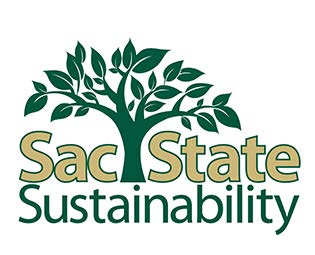 The sustainability team has been collaborating with numerous campus partners to eliminate the use of Styrofoam on campus. While the rate is not 100% yet, significant progress has been made and the goal is attainable. Secondly, through outreach, Joey and his team hope to educate campus community members about how most food contaminated objects, like yogurt and coffee cups, frozen meal containers can in fact be recycled, once the food remnants have been removed. You can do that by rinsing the containers with water or simply wiping away the food. Lastly, the sustainability team has been working diligently to rollout a more comprehensive composting program for the entire campus. They have seen tremendous success in the resident hall composting project and are working to design a reliable model for the rest of the campus community. Therefore, your food items, like bananas and eggshells will eventually be composted, eliminating them from your trash bin.
The sustainability team has been collaborating with numerous campus partners to eliminate the use of Styrofoam on campus. While the rate is not 100% yet, significant progress has been made and the goal is attainable. Secondly, through outreach, Joey and his team hope to educate campus community members about how most food contaminated objects, like yogurt and coffee cups, frozen meal containers can in fact be recycled, once the food remnants have been removed. You can do that by rinsing the containers with water or simply wiping away the food. Lastly, the sustainability team has been working diligently to rollout a more comprehensive composting program for the entire campus. They have seen tremendous success in the resident hall composting project and are working to design a reliable model for the rest of the campus community. Therefore, your food items, like bananas and eggshells will eventually be composted, eliminating them from your trash bin.
Beyond your desk recycling and composting options, Joey was eager to share all of the other services that he and his team offer to support the recycling program on campus. Sac State recycling program offers confidential shredding in which they will work with your team to purge documents in a confidential and safe manner. The Sac State recycling team can also team up with you and your department to host a recycling day. A champion in your department, office or hall can contact Joey to set up a day in which everyone can bring in personal recycling items ranging from car batteries, metal, e-waste such as computers, cell phones or televisions. Recycling many of these items make money for the program while eliminating an extra trip for you and preventing the items from ending up in a landfill. As Joey said, “The goal of this program is to be the one-stop shop for recycling on campus.” He also encouraged anyone who is unsure what to recycle or not, to email the team at sustainability@csus.edu and they will help you make the right determination.
The recycling program at Sac State is just one of many highlights from our sustainability team. They are award winning and boosted a 63% diversion rate in 2016. It is important that we continue to support this program by doing our part and making a conscious effort to think before tossing things into the refuse bin. Chances are it can be recycled!
Sustainability Team Earns Double Praise for "Closing the Loop"
Sac State is honored to be the recipient of a Clean Air Award from Breathe California of Sacramento—Emigrant Trails. This is a local organization whose sole mission is to promote the health and wellness of clean air and they 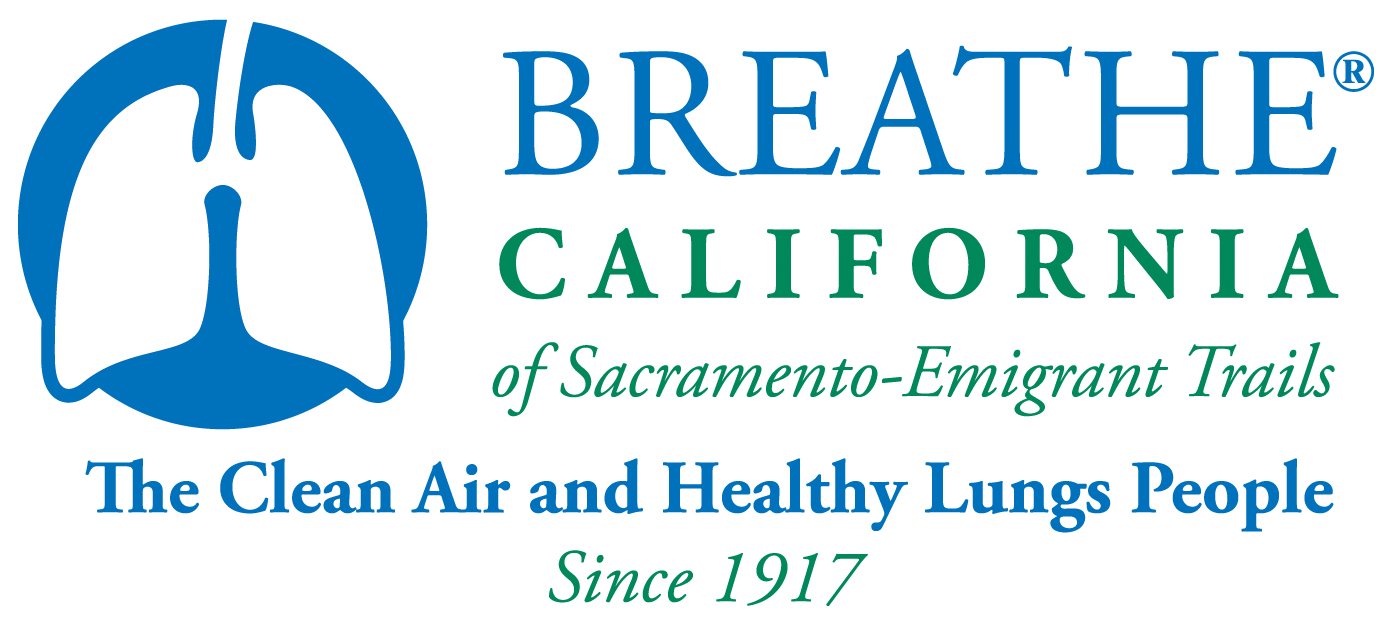 have recognized Sac State’s Closed Loop program as an example of success towards that goal.
have recognized Sac State’s Closed Loop program as an example of success towards that goal.
The Closed Loop program is the joint venture between Dining Services, UTAPS and Sac State Sustainability to capture all of the pre- and post-consumer food waste from the University’s Dining Commons. This waste is then taken to a local anaerobic digester, CLEAN World, where it is converted into bio-compressed natural gas. This gas is then purchased by UTAPS to power all eight of Sac State’s Hornet Shuttles.
This is Sac State’s second time winning this prestigious award and a great indicator of how Sac State is working to 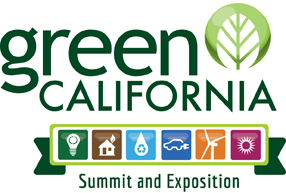 promote sustainability not just on campus, but for the entire Sacramento region. Sac State representatives will receive the award at a gala event to be held on May 11th.
promote sustainability not just on campus, but for the entire Sacramento region. Sac State representatives will receive the award at a gala event to be held on May 11th.
Similarly to the clean air award, Sac State’s closed loop program was also recognized by Green California and awarded a leadership award in the waste diversion category for their upcoming Green California Summit and Exposition, an annual convention held in Sacramento. Sac State representatives picked up the award on April 25th. This award actually marks the fourth award for this program, the other two being a 2015 CHESC Award for Waste Diversion and a CSU Facilities Management Conference award in the category of Sustainability.
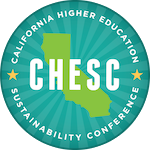
Sustainability Team Lights the Way with CHESC Award
For two consecutive years now, Sac State Sustainability has been awarded an award for the California Higher Education Sustainability Conference (CHESC). Ehe CHESCis the biggest sustainability conference in terms of California schools including CSUs, UCs, Community and Private schools.
This year’s award was for the Mendocino Hall retrofitting project. Energy Conservation Coordinator Nat Martin led efforts to update all the lights in the corridors, restrooms, and classrooms to energy efficient LEDs but even more impressive is that the project included two newer innovations: motion detection and light harvesting.
Using monitors, the light fixtures can now detect motion and if no one is detected, the lights dim to reduce energy consumption. Additionally, monitors can now sense the amount of light coming in through windows and can now dim to compliment the natural light to levels that are ideal for classroom work. This also saves energy! Way to go team!



